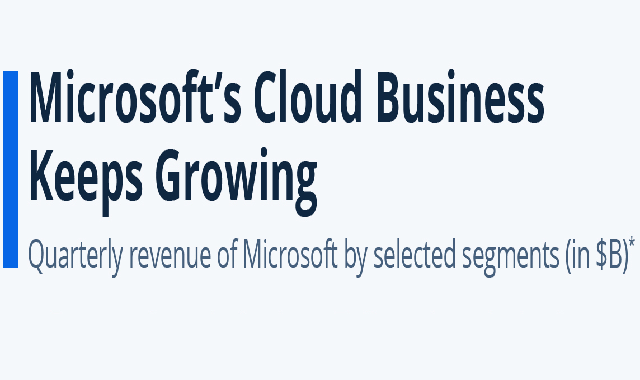The release of financial statements of Microsoft for the
quarter ending December 2022 presented investors and observers with a mixed bag.
Even though the revenue was recorded to be an all-time high of $52.7 billion,
the operating income of this tech company dropped by more than $1 billion
compared to the previous three-month period. This can be attributed to a
considerable cooling of the PC market, which hit OEM bundling business of Microsoft
and resulted in a continued decline of revenue in the Windows segment. The
company's saving grace: An increased focus on cloud solutions and Artificial Intelligence,
welcomed by CEO Natya Sadella as the "next major wave of computing"
in the accompanying earnings call.
Revenue generated with cloud products like Azure, Office 365 Commercial and the commercial portion of LinkedIn amounted to $27.1 billion. There is an increase of $5 billion or 22 percent year over year. Following an ongoing trend, the Server and Office segments made up approximately 60 percent of the revenue for second quarter of 2023 of this tech giant's fiscal year.
The gaming division of this tech giant saw greatest numbers between
October 2021 and January 2022, probably because of the continued growth of Xbox
Game Pass and the release of the highly anticipated new Halo game, the revenue bounced
back from its low numbers in the calendar year 2022. Still, its performance
turned out to be the worst of any Q4 since the start of pandemic. If the much
discussed acquisition of Activision Blizzard King is successful, this segment
could potentially outperform Windows products and become the third-biggest
revenue pillar for the company. This change towards further consolidation of
the video game market is at present facing increasing headwinds, with European
and U.S. regulators heavily inspecting the deal.
With cloud revenue being on the uptick for quite a while
now, the company has plans to further boost its revenues in this division. They
plan to make an investment of $10 billion in ChatGPT creator OpenAI to secure
an exclusive cloud provider deal between the AI non-profit turned startup, which
will effectively incorporate OpenAI into many of Microsoft's products. This
also consists of its search engine Bing, a plan that caused its competitor
Google to issue a Code Red, which indicates a severe threat to its business
model, and to announce a stronger focus on Google-developed AI solutions.


